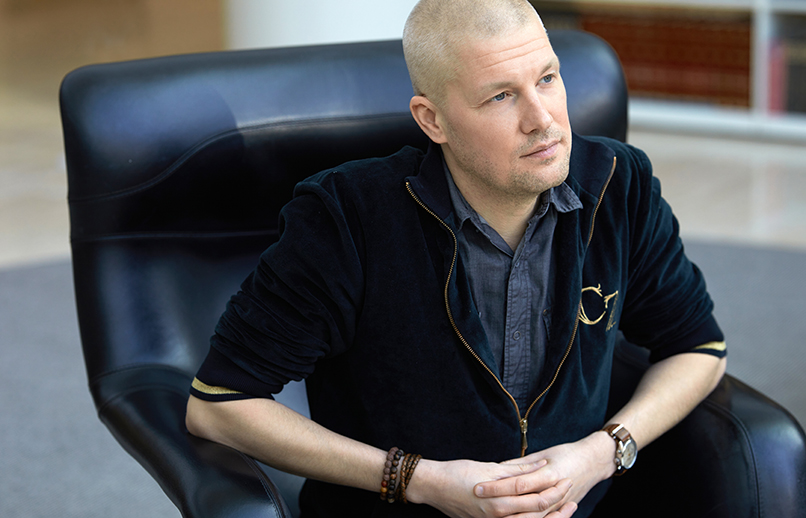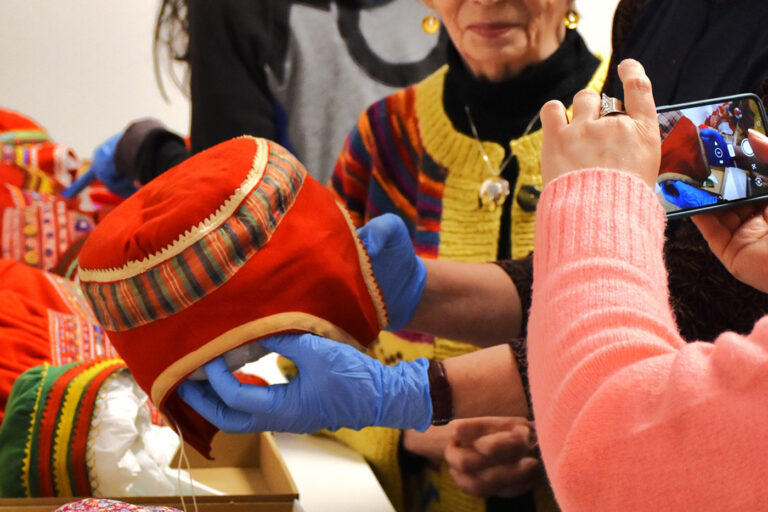What happens to the self in algorithmic consumer culture?
Artificial intelligence, algorithms, and automation shape society. Do people use technology, or does technology use people?


Text and photos: Laura Iisalo
Technological development is proceeding faster and faster while algorithms are increasingly making decisions on behalf of people in digital environments, such as social media.
The subject is widely discussed but Joel Hietanen, who focuses on the critical study of consumer culture, thinks that this type of automation is too often seen as a something neutral that makes life easier, while problems related to it are solved by optimising or mechanically repairing. Instead we should talk about the ways that algorithms affect the self and the very horizon of thinking itself.
– I find it astonishing that people, who generally care about their privacy, don’t consider it important when they use social media or other communication technologies with increasingly automated features. They have their homes and wrists full of devices made by multinational companies that collect data, and then send it all over the world. In Finland there seems to be not much in the way of critical discussion on why this type of consumer automation or algorithmic presence is so appealing and enjoyable, he says.
“I find it astonishing that people, who generally care about their privacy, don’t consider it important when they use social media or other communication technologies with increasingly automated features.”
An Associate Professor at the Helsinki University, Hietanen is leading a new research project, which intends to investigate what happens to the idea of an individual user in an environment that is increasingly controlled by automated technology and consumerism.
The project calls together a group of researchers specialising in consumer culture and technology. Among them is Eric J. Arnould, a Professor of Consumer Research at Aalto University School of Business, and Professor Alan Bradshaw and Dr Mikael Andéhn from the Royal Holloway, the University of London.
– We want to explore and investigate from a philosophical perspective, to what extent technology controls people and defines the outlines of the self. We tend to think that we control technology, and the word ‘user’ refers to this idea. But technology uses us even more than we dare to imagine, and we are starting to recognise that social media can cause depression and withdrawal from the world, Hietanen says.
Algorithms feed hate speech
In addition to the questions relating to the self, the three-year research project looks at the ways people act in groups in a digital environment to find out how automated technology affects and creates crowd behaviour that has been referred to as ‘swarms’ or ‘hive-minds’.
– The companies that utilise algorithms aim to break people into data pieces, which they then target and sell in global context. These companies want people to create data and they speed up the process by intensifying the online users’ emotions by providing strong impulses that generate hate speech or enthusiasm. This leads to the creation of echo chambers, and we have just witnessed how, in the US, the conspiracy theories that started on social media moved onto the streets, Hietanen says.
“What is it in our subjectivity that is so keen to accept this automation and willing to hand over everything of one’s self to it?”
The changing perception of time, and many other effects of the increasingly accelerating development and technologising consumer culture also interest Hietanen. He says that his intention is not to define whether these changes are good or bad, but to study them as a phenomenon. So far he has more questions than answers.
– What is the atmosphere like in a world that is increasingly controlled by algorithms? And first and foremost: what is it in our subjectivity that is so keen to accept this automation and willing to hand over everything of one’s self to it? What is the idea of a self that has been sucked into something like this?
The Central Fund awarded 180 000 euros for a research project titled Automated Selves: The algorithmic intensification of societal control, led by Dr Joel Hietanen.


